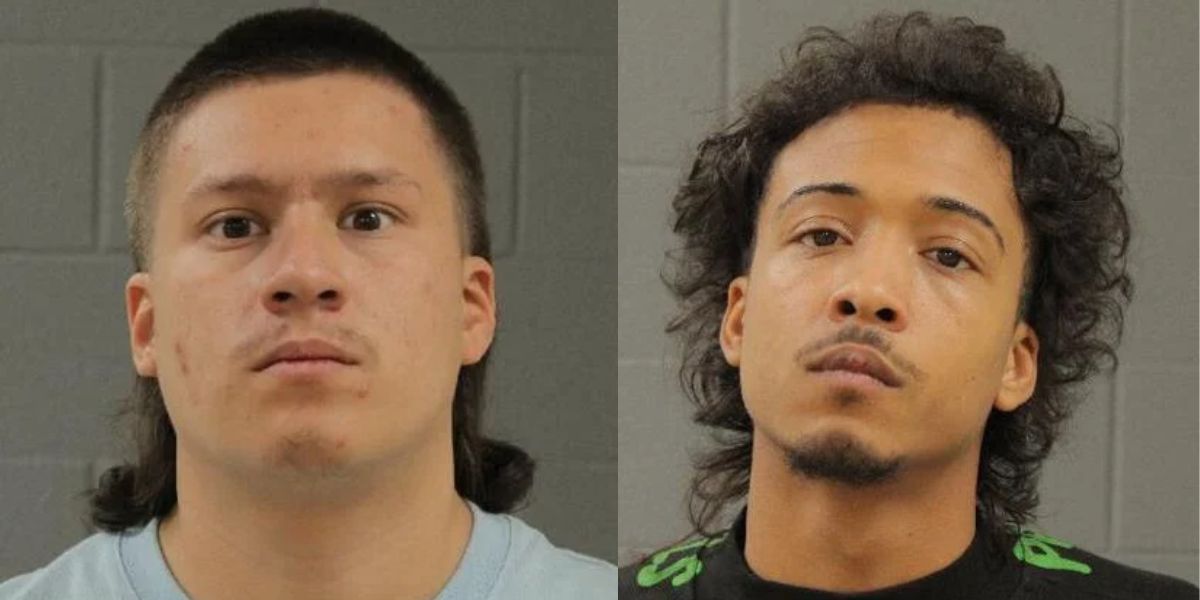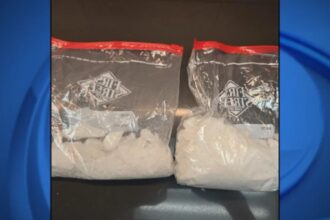St. George, UT – Last month, two man from California showed up for punishment in federal court.
Federal prosecutors took up the case when St. George officials discovered a complex bank fraud plot last year.
In November 2024, two 20-year-olds from San Bernardino, California, Jonathan Arreola and Kyle Thomas Welsh were indicted on a single federal count of conspiracy to commit bank fraud.
The case concerned checks that were fraudulently deposited at several Utah bank branches.
The defendants were arrested on September 20, 2024, when St. George police reacted to an allegation of a significant quantity of marijuana found in an unoccupied local motel room. This led to the federal prosecution.
Four cheques that looked to have been altered with the payee names changed were discovered by officers during a search of the room. A bank deposit receipt proving that a check for over $103,800 had been cashed the day before was also found, along with two printers.
Officers also discovered seven credit cards that belonged to people other than the accused.
Both individuals were arrested after the search and charged with misdemeanor possession of marijuana and drug paraphernalia, four charges of unlawful possession of a bank card, and seven counts of possessing a forgery device.
According to charge documents, detectives concluded that Arreola and Welsh were part of a fraud conspiracy that involved “several hundred thousand dollars obtained under false pretenses” as the investigation went on.
Both individuals were already the subject of a federal investigation at the time of their detention, investigators later discovered.
Federal charges

On Nov. 5, 2024, less than three months after the state case was filed in Utah’s 5th District Court, both individuals were charged with conspiracy to commit bank fraud and indicted in federal court.
Eventually, investigators learned that the plot was far more extensive than they had first thought. Over $435,000 worth of checks were found on the day of the arrest, and the suspects cashed or attempted to cash about $587,000 worth of fake checks in total.
Assistant U.S. Attorney Brady Wilson explained in a sentencing memorandum how the fraud started as a straightforward mail theft and developed into a major criminal scheme.
According to the indictment, the accused stole mail and packages straight from a mail sorting facility by posing as postal employees. They “washed the checks,” deleting and changing the original payee information, after sorting through the mail to locate high-value checks.
They then found people in Utah who agreed to give them a share of the money in exchange for letting them deposit the forged checks into their bank accounts.
The suspects used social media to promise these recruits access to bank accounts in exchange for a “large return on investment.”
According to police, the suspects used ATMs to deposit the phony checks late at night and promptly took the money out, making the account holders responsible when the banks discovered the scam.
Despite the fact that there was no physical assault or hurt, prosecutors highlighted the victims’ worry, inconvenience, and financial losses.
When authorities executed the search warrant at the motel, the defendants were still tampering with stolen checks, according to the St. George Police Department’s lead investigator. Officers found altered checks that had not yet been deposited and receipts for illegal drafts that had been placed.
A number of additional people were eventually arrested in relation to the plan, the detective noted.
The recovery of revenues and the confiscation of stolen checks before they could be processed lessened the overall impact, despite the large potential financial loss.
Arreola received a sentence.
Arreola was given a sentence that was “sufficient, but not greater than necessary,” according to federal prosecutors. They emphasized the seriousness of the act while acknowledging his youth and lack of criminal history.
On May 7 in St. George, Arreola went before U.S. District Judge Ann Marie McIff-Allen, where he received a sentence of 27 months in federal prison.
In order to provide for treatment programs and family visitation, the court suggested that Arreola serve his time in the Federal Correctional Institution Terminal Island in San Pedro, California. After his sentence, he will also be on supervised release for 36 months.
Welsh convicted
Prosecutors argued that Welsh played a leadership role in the plan and sought a somewhat longer term of 30 months, despite the fact that he had no past criminal history.
In the end, Welsh received a sentence of three years of supervised release and 28 months in federal prison.
In order to allow for family visitation, Judge McIff-Allen suggested that Welsh complete his term at the Federal Correctional Institution in Lompoc, California.
Both defendants were required to make restitution totaling around $13,700.









